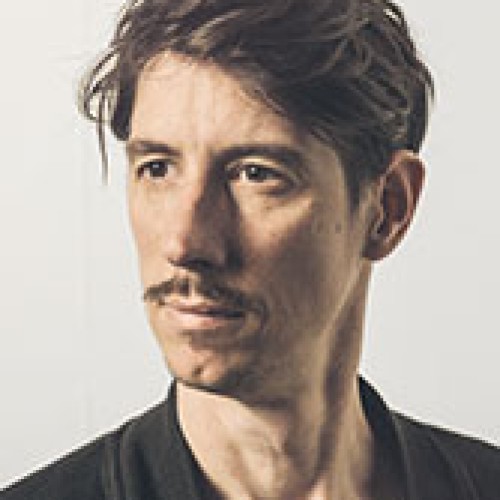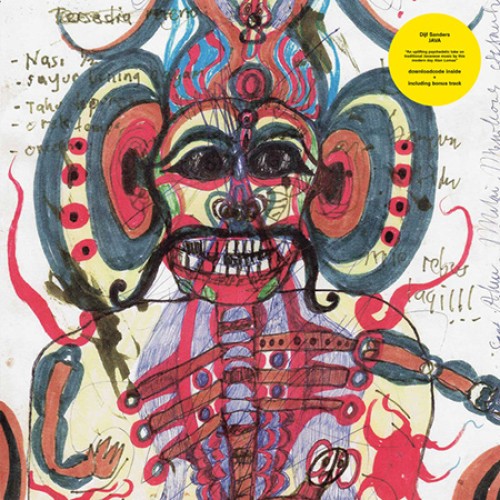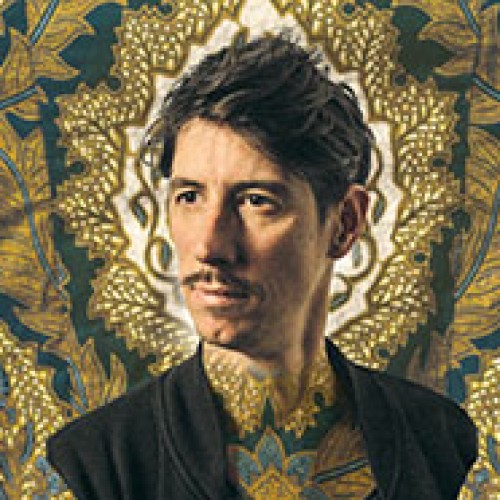
Dijf Sanders
- Instruments : Organ, Percussion, Bass
If you happen to be looking for a musician who combines a broad mix of styles with a boundless artistic approach full of multicultural blends, Dijf Sanders is your man. The Ghent based artist has always been working on various projects, collaborations or productions at the same time – lately he worked with Sylvie Kreusch, Matthias De Craene's MDC III and The Germans, to name a few – but that did not prevent him from releasing solo records as well. Since 2005, five albums have sprung from his musical mind, with the eclectic 'JAVA' as latest highlight. The songs on the album originated from hundreds of field recordings Dijf made during his trip to the Indonesian island of Java, which he combined with his own unique exotica and electronica sounds.
Dijf, who was also a member of the (synth)pop bands Teddiedrum and The Violent Husbands, already raised excitement with the exotica-oriented 'Moonlit Planeterium' (2016), an album that created an experimental clash between percussive, ethnic sounds and rather Western beats, occasionally topped off with his mysterious vocals. On 'JAVA', the musician takes his methods another step further and tried to capture the sound of Indonesia. This challenge took shape at the request of Europalia, a bi-annual cultural festival that aims to shine a light upon one specific country every edition.
Armed with a microphone and a backpack stuffed with recording material, Dijf traveled about Java in Spring 2017, accompanied by the American translator and music ethnologist Palmer Keen. During the musically extremely enriching adventure, Dijf came across the characteristic sounds of local instruments (such as kacapi, kendang, angklung, calung of gamelan) as well as certain surprising native animals and their sounds, as for example the mole cricket or even real choirs of marsh frogs. Bamboo, one of the primary economical sources on the islands, turned out to be another great inspiration as a rhythmic and melodic instrument. Also, the intriguing phenomenon of waterpercussion, a century old ritual performed by Javanese women while they bathe in the river, was implied in the track 'Banyumas'.
Another important part of Dijf's cultural immersion on Java is Jaipongang. The traditional dance and music style, rooted in the 1970's, can be seen as a chauvinist Indonesian response to the 'Western rock-'n-roll' and turned out to be very popular. The upbeat song 'Jaipong' on the album was created with lots of Jaipongan samples that Dijf was able to record in an inspiring Jaipongan-only bar in Bandung. Therefore, 'JAVA' displays a constant mixture between nature and culture, as well as a blend between the original sounds from his field recordings with additions from synth, drum(computers) and other electronica.
During the studio process, back in Belgium, Dijf invited his befriended musicians from Black Flower – Nathan Dames, Filip Vandebril and Simon Segers – who added their typical ethio-jazzvibes to his tracks. The result is a collection of 9 psychedelic and eclectic exotica-tracks, brought together on the auditory very rich album 'JAVA'. Between danceable and mesmerizing, between electronic and acoustic and between traditional and modern, Dijf Sanders visited a place in the international musical landscape where no one ever came. In other words, he created a willful, unpreceded sound that will leave an unavoidable mark on every single listener.


